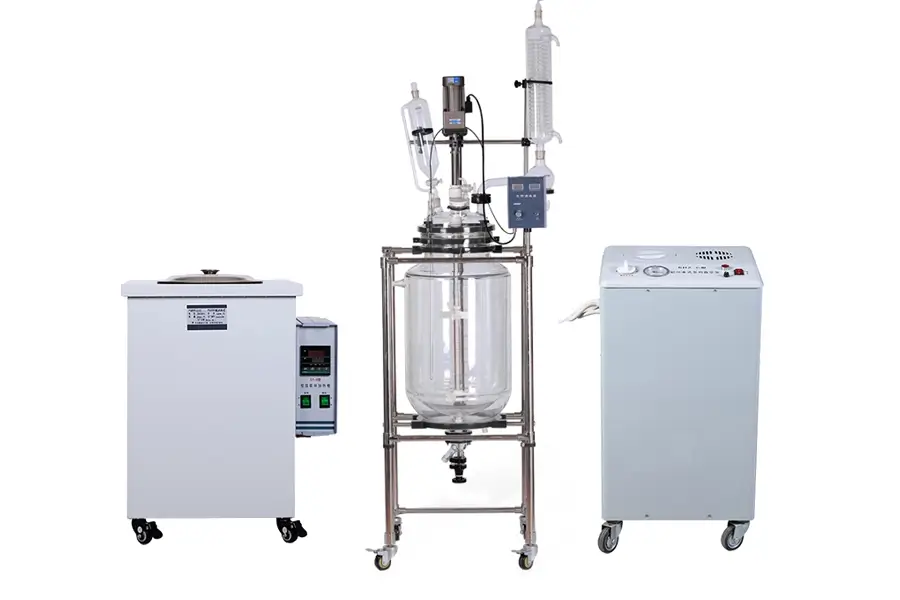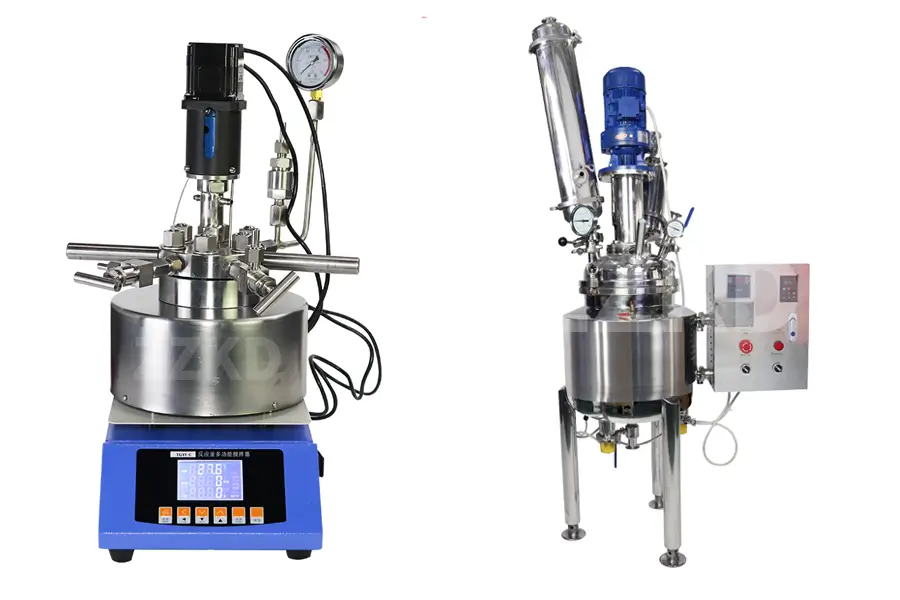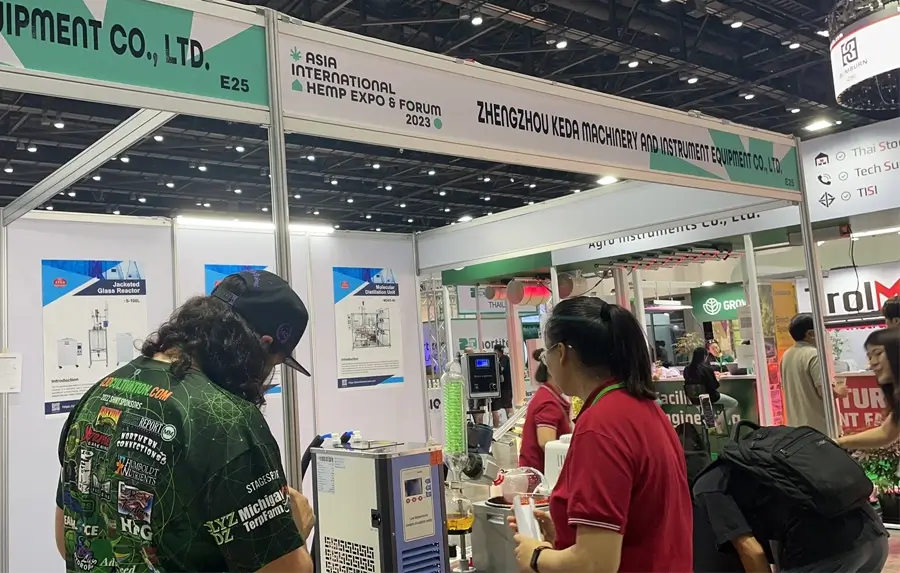What Do You Need to Know About Pilot Scale Reactors?
Are you finding it hard to move your lab discovery to full production? Pilot scale reactors are your bridge to success, reducing risks when you scale up.
Pilot scale reactors are key for testing your process and finding the best settings before you go big. This helps make sure everything runs smoothly and saves money.

As a company that has been making and sending out lab gear for over 16 years, I've seen how important good pilot equipment is. It’s that middle step that really lets you see if your great idea in the lab can become a real product. We help many folks figure this out.
Why Are Pilot Scale Reactors a Crucial Step in Your Process Development?
Struggling to take your lab success to full production? Worried about the risks and costs of scaling up too quickly? Pilot scale reactors bridge this critical gap for you.
Pilot scale reactors are essential for testing processes, optimizing parameters, and gathering data before committing to large-scale manufacturing. This minimizes risks and ensures a smoother transition for your project.

Moving from a small lab setup to full-scale production is a big jump. Pilot scale reactors help make this jump safer and smarter. They are like a dress rehearsal for your big show. You get to test everything on a medium scale.
Benefits of Using Pilot Scale Reactors
One main benefit is reducing risk. If something goes wrong, it's better to find out at the pilot stage than when you've spent a lot on full production. You also get to fine-tune your process. Maybe you need a bit more heat or a different mixing speed. Pilot reactors let you figure this out. You also collect a lot of data. This data is super important for designing the full-scale plant and making sure it will work well. It also helps you see if your process will make money. I remember a client working on a new specialty chemical. They were excited, but unsure about the costs. Using one of our pilot reactors, they gathered precise data on yield and energy use. This helped them create a solid business case before investing millions in a large plant. It truly showed them the economic viability of their project.
What Types of Pilot Scale Reactors Can We Provide for Your Specific Needs?
Overwhelmed by reactor choices for your pilot plant? Unsure which material or pressure rating is right for your chemical or pharmaceutical process? We offer a range to suit diverse applications.
We specialize in glass reactors, stainless steel reactors, and high-pressure reactors. Each is designed for specific chemical environments, visibility needs, and operational pressures in pilot-scale operations.

Choosing the right type of pilot reactor is very important. We offer different kinds because every project has different needs. Let's look at the main types we make.
Glass Reactors for Visibility and Versatility
Our glass reactors are great when you need to see what's happening inside. This is really helpful for processes like crystallization or when you're developing a new reaction. You can watch the mixing, see color changes, and make sure everything looks right. Borosilicate glass is also very resistant to many chemicals, especially acids. They are easy to clean too. We offer sizes like a 10L glass reactor or a bigger 50L glass reactor, perfect for pilot studies.
Stainless Steel Reactors for Durability and Pressure
When you need something tougher, our stainless steel reactors are a good choice. They can handle higher pressures and temperatures than glass. This makes them suitable for reactions like hydrogenations or polymerizations. We use quality stainless steel, like 316L, which is good for many chemical processes. A stainless steel reactor vessel is often chosen for its robustness in demanding pilot plant environments.
High-Pressure Reactors for Demanding Reactions
Some reactions need very high pressures. For these, we have specialized high pressure autoclave reactors. These are built with safety as the top priority, using strong materials and designs to handle extreme conditions. They are used in research for things like supercritical fluid applications or making new materials. I recall working with a research institute that needed to study reactions under 100 bar; our high-pressure system was exactly what they needed for their groundbreaking work.
Here’s a quick comparison to help you see the differences:
| Feature | Glass Reactor | Stainless Steel Reactor | High-Pressure Reactor |
|---|---|---|---|
| Visibility | Excellent | Poor | Poor (viewports possible) |
| Pressure Rating | Low to Moderate | Moderate to High | Very High |
| Temperature Range | Wide (with proper ancillaries) | Wide | Very Wide |
| Corrosion Resistance | Excellent (acids), Poor (alkali) | Good (material dependent) | Good (material dependent) |
| Typical Scale | Lab to Pilot | Pilot to Production | Lab to Pilot |
How Do You Select the Ideal Pilot Scale Reactor for Your Application?
Confused about matching a reactor to your specific chemical process? Worried about investing in the wrong equipment for your pilot stage? Making the right choice is key for your project.
Selecting the ideal pilot scale reactor involves carefully considering your reaction chemistry, required volume, temperature and pressure needs, material compatibility, and safety requirements to ensure optimal performance.

Picking the right pilot reactor can seem tricky, but we can help you break it down. It’s about matching the reactor to what your process needs. I always tell my customers to start with their chemistry.
Understanding Your Process Parameters
First, think about the basics of your reaction. How much material do you need to process in one batch? This tells you the volume. What temperature and pressure does your reaction need? This will guide whether glass, stainless steel, or a high-pressure unit is best. Also, how do you need to mix it? Some reactions need gentle stirring, others vigorous agitation. We offer different agitator types and speed controls. And don't forget heating and cooling. Most of our pilot reactors are jacketed, so you can connect a temperature control unit.
Material Compatibility is Key
This is a big one. The materials of the reactor must not react with your chemicals. Borosilicate glass is great for many acids. For other chemicals or higher pH values, stainless steel (like 304 or 316L) is often better. If you have very corrosive stuff, we might suggest special alloys like Hastelloy. We once had a client who almost chose the wrong material for their stainless steel chemical reactor. We talked about their process, analyzed the chemicals, and helped them pick a grade of steel that would last much longer. Getting this right saves a lot of trouble later.
Safety and Regulatory Considerations
Safety is always number one, especially with pilot scale equipment where you might be testing new things. Our reactors are designed with safety in mind, like pressure relief valves or rupture discs. Also, think about any rules or standards you need to follow. Our equipment has CE and ISO9001 certifications, which helps meet many international quality and safety standards.
What Are the Key Challenges and Solutions When Scaling Up with Pilot Reactors?
Anxious about the jump from lab bench to pilot production? Facing unexpected issues like heat transfer problems or mixing inconsistencies during scale-up? We can help navigate these common hurdles.
Key scale-up challenges include maintaining consistent heat transfer, ensuring effective mixing, and managing safety. Proper pilot reactor design and thorough testing address these issues effectively.

Scaling up isn't just about making things bigger. New challenges can pop up. But that's exactly why pilot reactors are so useful – they help you find and solve these problems before you go to full scale. I’ve seen many clients work through these steps.
Heat Transfer Management
When you make a reactor bigger, the inside volume grows faster than the outside surface area. This can make heating and cooling tricky. What worked in a small flask might not work the same in a 50L reactor. Our jacketed pilot reactors are designed for good heat transfer. We also help customers choose the right temperature control unit (TCU) to make sure they can manage the temperature well.
Mixing and Mass Transfer
Getting good mixing is also more challenging in a larger vessel. You need to make sure all your reactants are mixing properly so the reaction happens evenly. The design of the agitator (the stirrer), its speed, and whether you have baffles (to stop a vortex) all become very important. Testing different mixing setups in your pilot reactor helps you find what works best for your specific process. Sometimes, achieving the same level of mixing as in the lab requires careful adjustment of impeller type and speed.
Safety at Scale
Working with larger amounts of chemicals means you have to be even more careful about safety. Pilot plants need robust safety features. This includes things like pressure relief valves, rupture discs, and systems that can shut down automatically if something goes wrong. It's also really important to have good training for everyone operating the equipment and clear standard operating procedures (SOPs). We always stress the importance of safety interlocks and regular equipment checks. A client once told me how a well-placed safety valve on their pilot reactor prevented a serious issue when an unexpected pressure spike occurred. That’s why these features are not just optional.
Here’s a table of common issues and how pilot reactors help:
| Scale-Up Issue | Pilot Reactor Solution |
|---|---|
| Inefficient Heat Transfer | Jacketed vessel, optimized TCU, internal coils (if needed) |
| Poor Mixing | Proper agitator design, baffles, variable speed control |
| Extended Reaction Times | Parameter optimization through pilot runs |
| Safety Concerns | Robust design, pressure relief systems, safety interlocks |
| Product Quality Issues | Fine-tuning conditions based on pilot data |
Conclusion
Pilot scale reactors are vital for smooth scale-up, helping you test, optimize, and ensure your process is ready for production. We're here to help you choose the right one.
